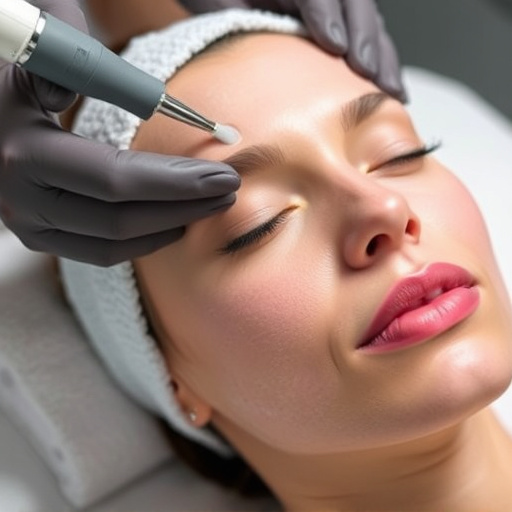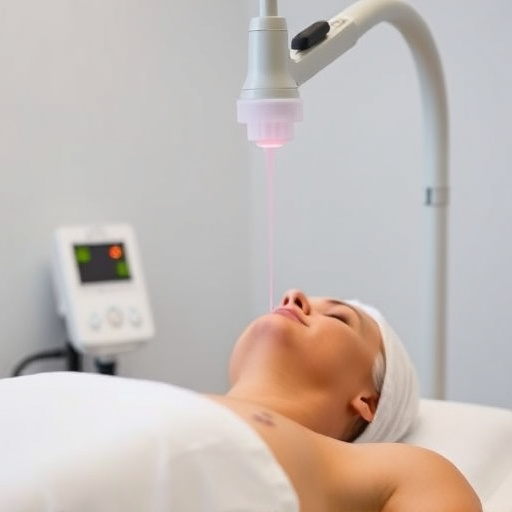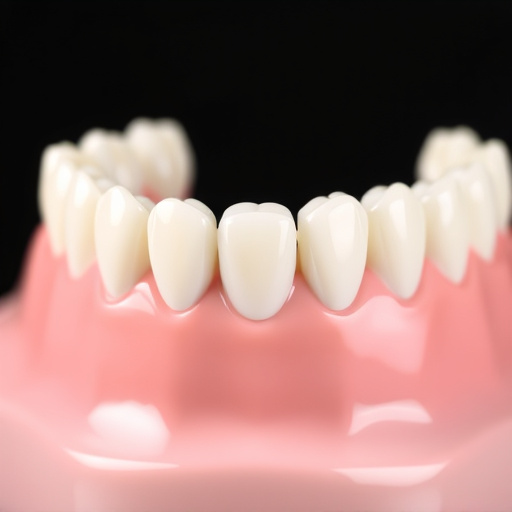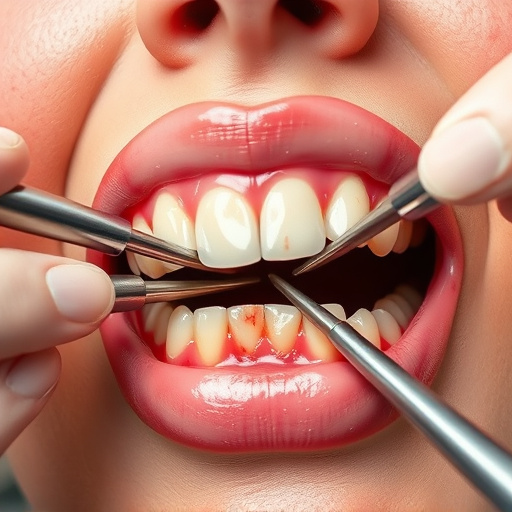An oral health assessment is a vital part of dental care, offering detailed inspections using X-rays and specialized tools to detect early signs of issues like tooth decay, gum disease, misalignments, and oral cancer. Early detection enables targeted treatments, preventing future, costlier interventions. Orthodontic care, guided by these assessments, addresses misalignments like crowding or overbite, enhancing both oral health and self-assurance. Timely assessments prevent severe orthodontic complications and emergency dental care, promoting proactive oral health management.
Oral health assessment is a crucial step in uncovering hidden dental issues. This comprehensive evaluation goes beyond visual inspection, utilizing advanced techniques to diagnose misalignments and underlying problems. In light of these findings, orthodontic care emerges as a vital tool for addressing misalignments that extend beyond aesthetic concerns. Early intervention through oral health assessment plays a pivotal role in preventing complex oral health complications, emphasizing the importance of proactive dental care.
- Unveiling Dental Issues Through Comprehensive Assessment
- Orthodontic Care: Addressing Misalignments Beyond Aesthetics
- Early Intervention: Preventing Oral Health Complications
Unveiling Dental Issues Through Comprehensive Assessment
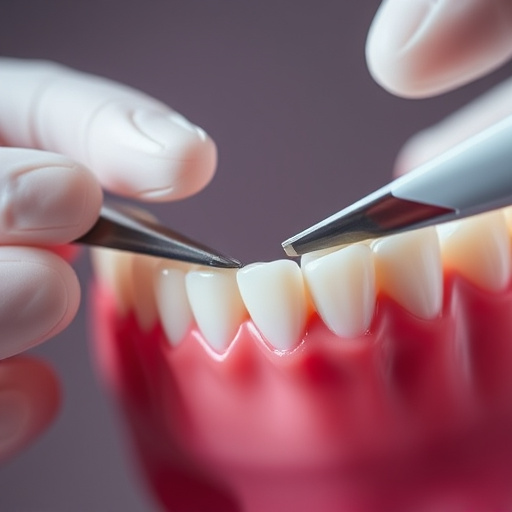
An oral health assessment is a crucial step in uncovering potential dental issues that may be hidden beneath the surface. It goes beyond a simple teeth cleaning and involves a thorough examination of your mouth, gums, teeth, and even jaw structure. This comprehensive dental care approach allows professionals to detect problems such as tooth decay, gum disease, misalignments, and even early signs of oral cancer. By identifying these issues at their inception, individuals can receive appropriate treatments, including restorative dentistry procedures, to maintain optimal oral health.
During an assessment, various tools and techniques are employed to ensure no stone is left unturned. This may include X-rays, visual inspections, and specialized instruments designed to measure gum health, tooth mobility, and the overall functionality of your jaw. Such meticulous examination enables dentists to provide personalized recommendations, suggesting orthodontic care when necessary. Early intervention through comprehensive dental care can prevent more complex—and costlier—treatments in the future.
Orthodontic Care: Addressing Misalignments Beyond Aesthetics
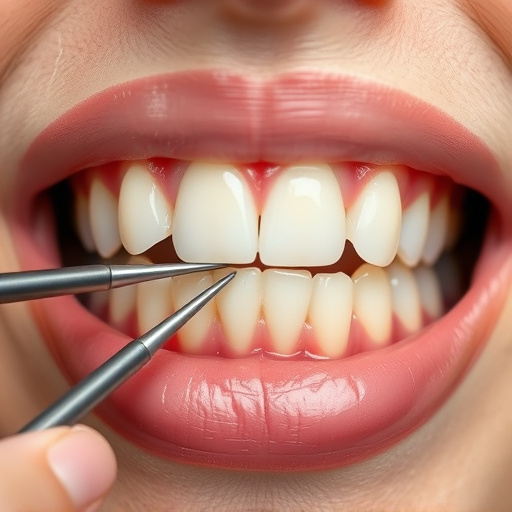
Orthodontic care goes beyond improving the aesthetics of a smile; it’s about addressing misalignments that can impact overall oral health and well-being. A comprehensive oral health assessment, often conducted during routine family dentistry visits or as part of a patient’s regular dental check-ups, plays a pivotal role in identifying these issues early on. By examining tooth positioning, bite patterns, and jaw alignment, dentists can pinpoint problems like crowding, overbite, underbite, or misaligned teeth that may be causing discomfort, difficulty chewing, or other oral health complications.
Beyond addressing functional concerns, orthodontic care also has significant cosmetic benefits. Misalignments can affect a person’s self-esteem and confidence in their smile. Fortunately, modern orthodontics offers various options, from traditional braces to invisible aligners, tailored to individual needs. Incorporating these treatments into routine oral exams allows for proactive care, ensuring that not only are potential dental issues resolved, but also that patients achieve the aesthetic results they desire, thereby enhancing their overall oral health and self-assurance.
Early Intervention: Preventing Oral Health Complications
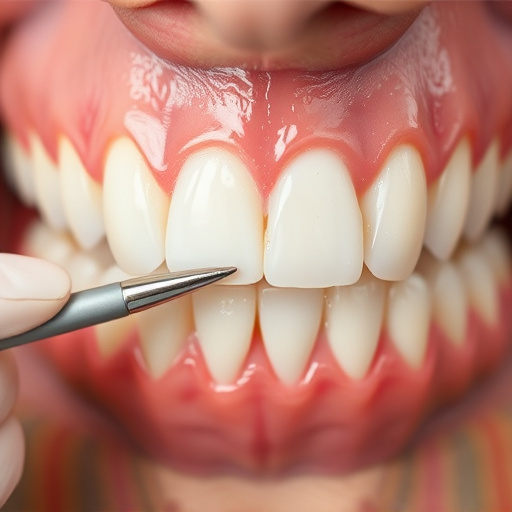
Early detection through oral health assessments plays a pivotal role in preventing severe complications that can arise from neglecting orthodontic issues. Many people often overlook the importance of regular check-ups, but these assessments provide valuable insights into potential problems before they become painful and costly to treat. Orthodontic care is not just about straightening teeth; it focuses on ensuring overall oral health and functionality.
By identifying misalignments or abnormalities early on, dental professionals can guide patients towards appropriate interventions. This may involve simple adjustments or, in some cases, more complex procedures like wisdom tooth removal. Timely intervention prevents the need for emergency dental care, which is often more traumatic and expensive. Regular oral health assessments empower individuals to take proactive steps toward maintaining a healthy smile for life.
An oral health assessment is a crucial step in understanding the intricacies of dental care. By uncovering hidden issues, it emphasizes the importance of orthodontic treatment beyond mere aesthetics. Early intervention through such assessments can prevent complex oral health complications, ensuring a healthier, more confident smile for the long term. These findings highlight the value of comprehensive oral health assessments as a game-changer in managing dental misalignments.

